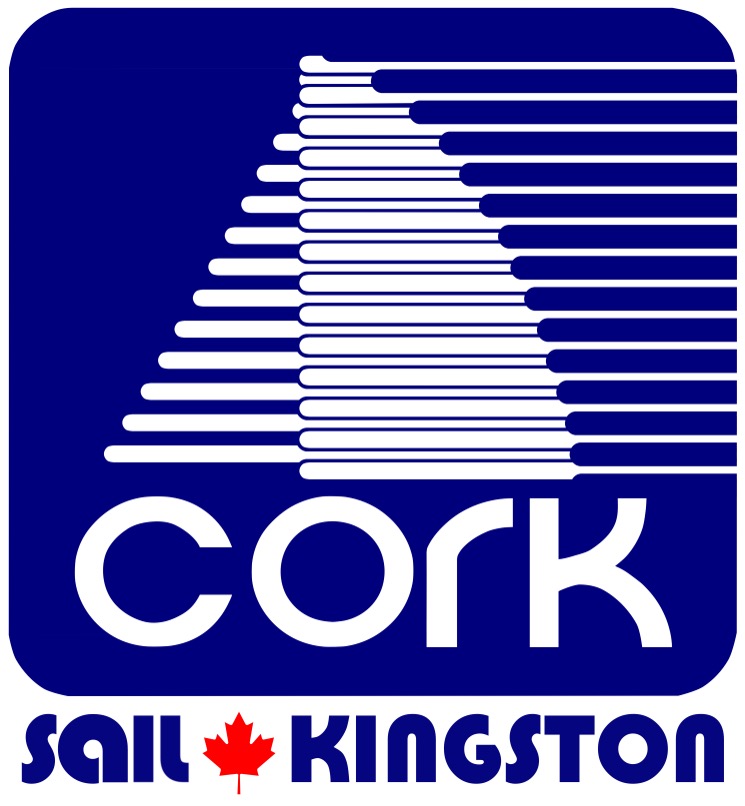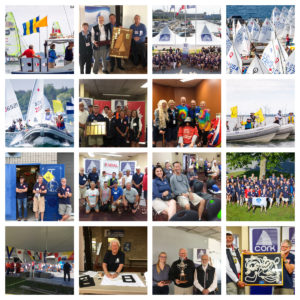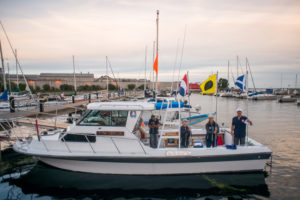How to Volunteer at CORK:
Thank you to everyone that has ever volunteered at CORK!
If you missed the volunteer sign up or need to change your assignment, please email Rae at sail@cork.org!
First Step: Fill in our Volunteer Survey so that we know where and when you want to volunteer!
Once you have been accepted as a volunteer, you will receive your assignments, and all other information in a Volunteer Welcome Package well in advance of the start of each event.
Hours: Typically, your help will be required from 8:30AM to 5PM but may vary dependent upon the racing schedule (course start times), the volunteer position you have been assigned to and the weather. There will be a volunteer briefing every morning.
Volunteer Benefits:
Accommodation: CORK has arranged for volunteer accommodation at Queens University and will assign volunteers to rooms. These rooms are in the Queens Residences that are close to downtown and Portsmouth Olympic Harbour that offer two separate rooms with a double bed in each that share a bathroom in the centre. *The CORK office will booking/coordinating all rooms at Queen’s, so please notify us at sail@cork.org with any questions or concerns.
Morning Snacks and Coffee!
Lunch by Wheat Kings! Lunch will be pre-ordered and include a wonderful locally made sandwich on fresh bread and a baked good.
Thank you Dinner! We will be offering a simple dinner / social for volunteers at each event. We will be using a couple of different locations and hope you can all join us.
Reusable water filling stations: Please bring your own water-bottle(s) to ensure you have enough liquids for the day.
Each volunteer should bring the following:
• Personal medications – If you have special conditions, such as epilepsy or heart conditions, or have allergies and carry an Epi-pen, please let others around you know of these or any other medical concerns so they may properly assist in an emergency.
• Sun block (SPF 15 minimum, SPF 50 recommended)
• Weather-appropriate clothing. Remember it is cooler on the water and in the wind. A windbreaker or foul weather gear is suggested.
• Re-usable water bottle(s)
• Hat and sunglasses
• PFD
• Work/sailing gloves are useful if you are hauling anchors.
• A change of clothing
On-water volunteers are normally in an open boat and will not leave the course until the completion of the day’s events, with the exception of emergencies. For this reason, the items above are very important. Keep your belongings in a waterproof bag, or place your bag in a plastic bag if it is not waterproof. Black soled shoes are to be avoided, as they will mark a boat’s deck. Sandals or open-toed shoes are not recommended on water. On-shore volunteers may experience the same exposure conditions as on-water volunteers except they can find shelter.
Volunteer Positions:
On-Water
Course Race Officer — Directs and controls all personnel and boats on the race course.
Deputy Race Officer — Assists the Course Race Officer.
Race Committee/Signal boat—Directed by the Course Race Officer:
Timer — Timing race activities and keeping the race committee informed of the sequence of events.
Flags — Raising and lowering flags at the direction of the timer/ Course Race Officer.
Recorder —Recording of activities and sail numbers as required.
Pin Boat—At the direction of the Course Race Officer, positions herself at the end of the start line and observes the starting sequence to record and report sail numbers as required.
Finish Boat—At the direction of the Course Race Officer, positions herself at the finish line and records sail numbers crossing the line.
Mark Boats—At the direction of the Course Race Officer, positions herself to drop and moves all marks as required during racing.
Safety Boats—The safety boat fleet will monitor the fleets from launch until boats are back ashore, and, if required, render assistance . Safety boats may be moved from course to course as required.
Jury —Directed by the Protest Committee Chair, certified judges will provide on water evaluation and/or monitor the fleets during races; their work will continue ashore handling protests and requests for redress. For keelboat events, the Jury does not usually go on the water, but does handle protests and requests for redress.
On-Shore
Equipment—Maintain, store, hand out and receive all equipment used by the regatta personnel and boats. This equipment includes anchors, chains, etc. Runs from 8:00 AM until all equipment is returned for the day.
Site Services—Lay out and mark storage areas for fleets and ensure competitors store boats and equipment in designated areas. Direct parking and traffic flow.
Communications—Stationed in the communication centre or in the regatta office – open each day from 8:00 AM to the end of sailing. Uses VHF marine radios to maintain communication with all activities and maintains the radio log.
First Aid—Works out of the First Aid Station—open each day from 8:00 AM to the end of sailing. Provides first aid to competitors, volunteers, and coaches.
Launch—Assists competitors at the boat launch, stores boat dollies, retrieves dollies and assists competitors when moving boats.
Registration—This role services the registration desk before each regatta, where all competitors check in and receive their registration package. Information from registration forms is entered into the database on a daily basis, before and during the regatta. The registration desk typically operates the day and evening before each regatta starts and the first morning of each event.
Information—The information desk will provide regatta-specific, and general Kingston information. Staffed by a person knowledgeable of the Kingston area and local events.
Media—Works with the media, writes and distributes stories and distributes results from the day’s sailing to various news organizations. CORK media includes: Website: www.cork.org – Instagram: corkkingston
Ceremonies—Assist with preparing for awards ceremonies. Award ceremonies are usually held in the late afternoon on the last day of the regatta.
Scoring —Using the finish boat recording sheets, results are input into a computer which calculates the score for each boat. Results are uploaded to RacingRulesofSailing.org.
Social— Assists with after sailing events, such as socials and BBQ’s.
[accordions id=’10531′]


